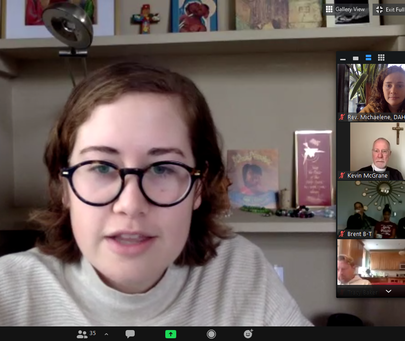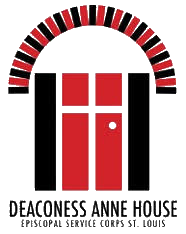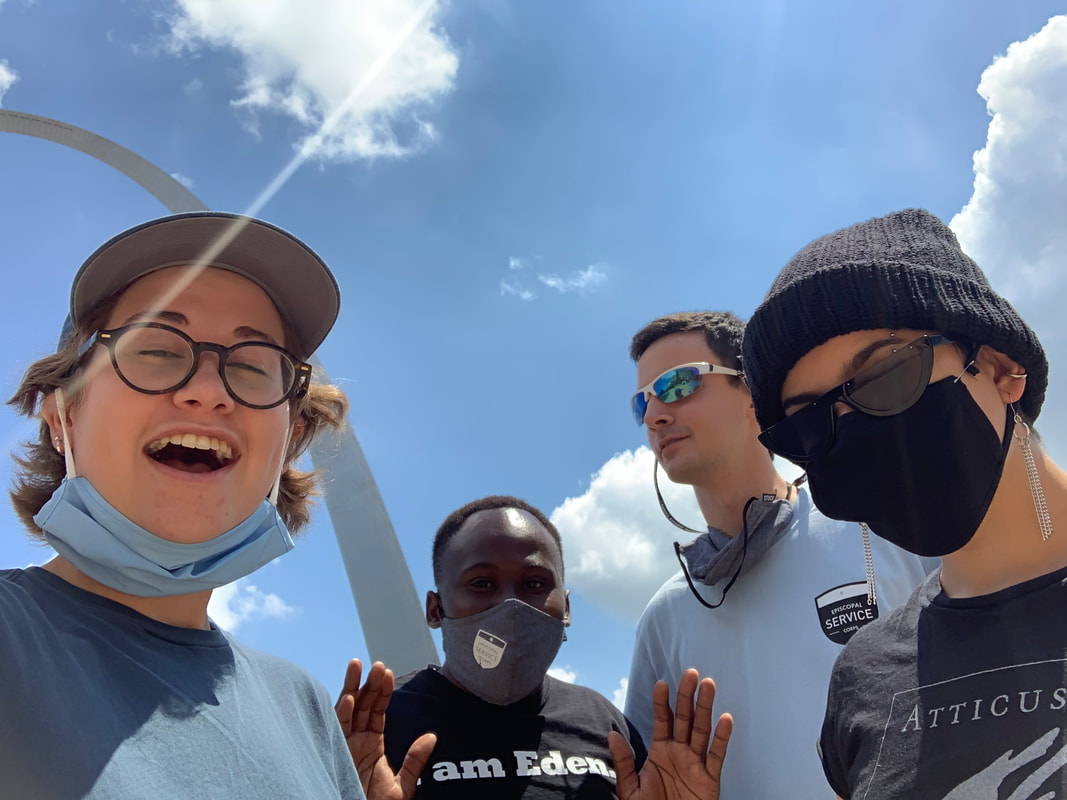 Sermon from October 25, 2020, at St. John's - Tower Grove in St. Louis, MO. Given by Corps Member Maddy Bishop Good morning, everyone! My name is Maddy Bishop and I am a corps member at Deaconess Anne House. Following an internship at Christ Church Cathedral in the summer of 2019, I joined this program in January of this year, getting about 6 weeks of time here before COVID hit. Yet, even with COVID-19, and all the curveballs that it has thrown, I have really come to love this city. The people of St. Louis and the Episcopal Church community here have taught me a lot about how to love my neighbor. This summer, in the wake of George Floyd’s murder, I joined folks from all across the country in protesting police brutality. There were many chants chanted that night, but there was one chant in particular that really struck me. As we walked down Euclid in the Central West End, folks standing on their balconies watching us walk by, we chanted “out of your homes and into the streets! Out of your homes and into the streets!” I found myself both choked up and deeply convicted. Sure, I was in the crowd. But in that moment it felt like the story of Jesus calling out to Peter in his fishing boat saying “Come, follow me,” and I was being asked to drop my metaphoric nets of individualism and comfortability and give myself completely to Jesus’s ministry, one that is already happening out there in the streets. This crowd of protesters, in the streets demanding justice, taught me a little bit more about how loving my neighbors means getting close and getting involved. I was talking with my friend Will the other day and he said, “If you were to ask me what Jesus was all about, I would probably reference these verses. They are classic Jesus material.” These are some of Jesus’s most famous words, invoking us to love God and love people. But what does that even mean? What does it mean to love God with all my heart, soul, mind and strength? What does it mean to love my neighbor as myself? Will is right. These verses are classic Jesus, but they are also classically used as vague Christian platitudes. I see unhoused folks forcibly removed from underpasses by St. Louis city government. Every day I drive by a whole block in my neighborhood that has been completely leveled to dirt. What was once filled with 100 year old homes that belonged predominately to black folks, was made imminent domain and bulldozed so that a new Geo-spatial government unit could be built, displacing countless families who had lived there for generations and furthering the gentrification of the North side. Just this week, another beloved business in St. Louis has closed due to COVID-19. One of the few remaining LGBTQ+ bars that served as a place of safety and refuge has closed for good. So what does it mean for me to love my neighbor when I live safely and comfortably in Episcopal Church housing but drive by the same folks asking for money at a corner in my neighborhood? What does it mean for me to love my neighbor when every day I see the effects of racist redlining policies that have segregated the city and disproportionally affected people of color? I could go on. The list of injustice in our communities, cities and nation is long. There are no easy answers to many of these complex issues, but I believe that Jesus’s call to love God with every fiber of our being, and to love our neighbors likewise, is a call to getting invested in these hard questions. These commandments are a call to specificity in loving our neighbor. We are to orient our lives Godward, and in doing so, Jesus moves us to address the injustice we see all around us. Perhaps Jesus knew that these commandments left a lot up to interpretation and personal experience, maybe he knew that the best way to teach us was by modeling for us how to love God and love our neighbors. Jesus got very specific. Jesus didn’t write off the prostitute, nor begrudgingly dine with tax collectors. He made specific choices about who he spent his time with. Jesus lived his life with the “sinners” and the outcasts, the ones with whom religious authorities marked as unclean and with whom political authorities economically exploited. Jesus overturned the tables in Matthew 21 not out of a random bout of frustration, but in anger at the way the temple was being used as a place of scamming women. Women who were required by religious law to buy sacrificial doves in order to be made clean after giving birth. Jesus saw the way the money changers were raising the prices on these doves, Jesus noticed the systemic exploitation that was happening, and because he was living among the people and watching how It affected them, he sought to cleanse the system of its evil practices. Jesus got specific. In a few months, we will celebrate the Incarnation, the event in which God became one of us, the moment when God became human and dwelt among humanity. God’s love for us became manifest in the Incarnate Christ, who in an act of solidarity with the poor and dispossessed, came and dwelt among the least of us. I can’t help but think of the chants to “get out of your homes and into the streets,” and think of Jesus calling us out of our comfortability and into the places where God’s liberating love is already at work. Answering that call is scary and one that makes hard pressed demands upon our lives. God’s love got close in Jesus where he not only cared about the individual needs of people, but the systems that exploited them. So, our love for others must involve us getting close and invested, not only in service to others, but in working to end violent systems of injustice. I find comfort in Jesus, whose self-emptying, whose Incarnation and life lived among humanity, gives me the courage to open myself to the Spirit’s promptings and live as a Christian, a “little Christ” in the world. To love our neighbors, is to love God. The righteousness that grows from loving God with all our hearts, minds, and souls, is intrinsically connected to the justice that comes when we are loving our neighbors and being in relationship with them. Raj Nadella, a professor at Columbia Theological seminary said, “One cannot be in right relationship with God unless one does everything possible to be in right relationship with one’s neighbors as well.” Loving God with all our mind: studying scripture and letting it form and shape our lives Loving God with all our soul: worshipping God and praying for others, (even our enemies) Loving God with all our heart: being close to, and in mutual relationship with others, especially the least of these; All of this is in a symbiotic relationship with loving our neighbors. It is all one in the same. As theologian Cornel West said, “Justice is what Love looks like in public.” AMEN.
0 Comments
|
Categories |
|
Mailing address:
DAH c/o Diocese of Missouri 1210 Locust St. Louis, MO 63103 |
(c) 2014 - 2020 Episcopal Diocese of Missouri
|


 RSS Feed
RSS Feed